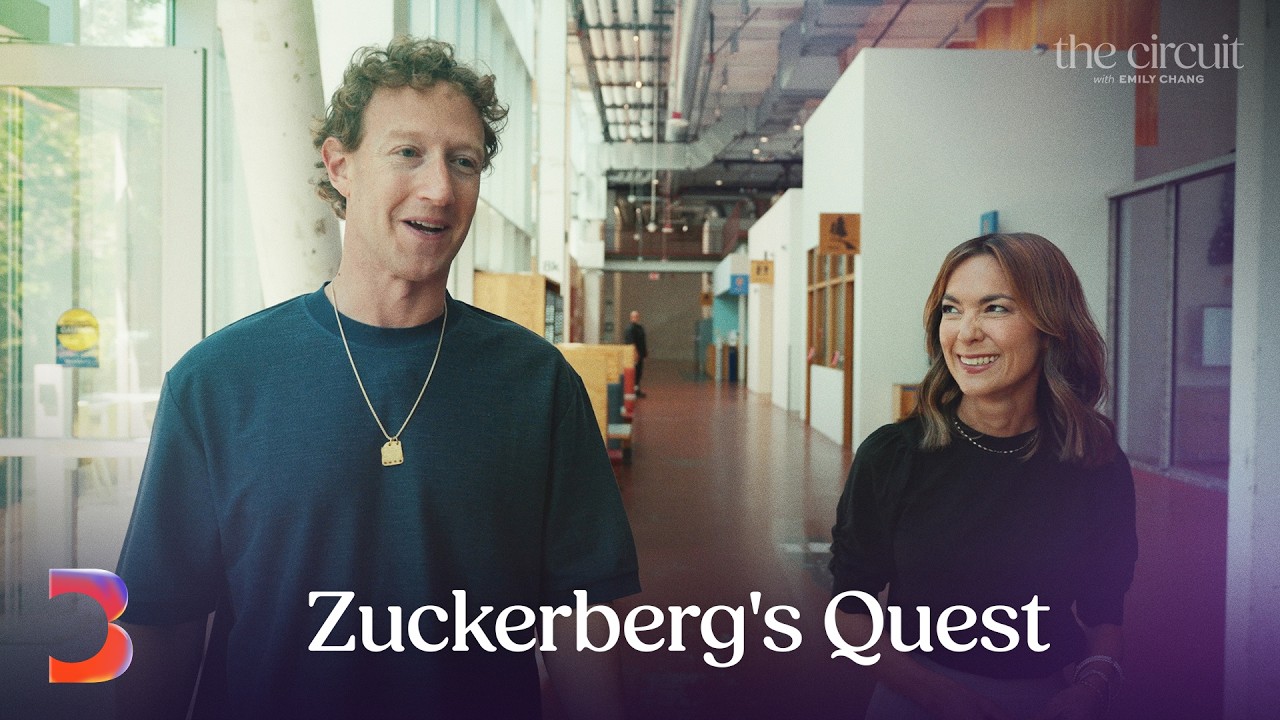In “Inside Mark Zuckerberg’s AI Era,” Mark Zuckerberg discusses Meta’s strategic shift towards open-source AI, emphasizing its potential to democratize technology and foster creativity among users. He also reflects on his personal evolution as a leader, balancing corporate ambitions with a focus on user well-being and the importance of genuine human connections in the digital age.
In the video titled “Inside Mark Zuckerberg’s AI Era,” Mark Zuckerberg discusses his evolution as the CEO of Meta and the company’s strategic shift towards open-source artificial intelligence (AI). He reflects on his past, acknowledging the criticisms he has faced over two decades at the helm of Facebook, now Meta. The term “Zuckaissance” is introduced, signifying Zuckerberg’s personal and professional renaissance, as he embraces a more relaxed and humorous public persona while navigating the challenges of running a major tech company. He emphasizes the importance of being authentic and comfortable in his skin as he evolves with the company.
Zuckerberg outlines Meta’s commitment to open-source AI, contrasting it with competitors like OpenAI and Google, which he describes as closed-source. He believes that open-source models will democratize AI, allowing startups, enterprises, and governments to build customized models suited to their specific needs. He predicts that the next generation of technology will be shaped by the contributions of many rather than a single dominant AI. This vision aligns with Zuckerberg’s long-standing belief in the value of open-source principles, which he credits for helping him launch Facebook from his college dorm.
Key developments highlighted include the upcoming release of Meta’s Llama 3.1, which features the largest open-source model to date at 405 billion parameters. Zuckerberg asserts that this model will empower users to create tailored AI applications, enhancing their ability to engage with their audiences creatively. He envisions a future where individual creators can train AI representations of themselves to interact with their communities, further personalizing digital interactions and making them more accessible.
The conversation also touches on the potential for AI-generated influencers and the societal implications of virtual interactions. Zuckerberg argues that technology should facilitate genuine connections among people and not detract from real-world interactions. He acknowledges the ongoing mental health crisis associated with social media use, stating that Meta is committed to implementing features that prioritize user well-being, especially for teenagers, while also recognizing the complexities surrounding social media’s impact on mental health.
In conclusion, Zuckerberg reflects on his long-term vision for Meta and the tech industry, emphasizing that AI will play a crucial role in the next decade of innovation. He expresses optimism about the future, believing that AI will enhance human creativity rather than diminish it. Throughout the discussion, he balances his corporate ambitions with personal insights, showcasing how his life as a family man and a tech leader intertwines as he navigates the challenges and opportunities of this new era in technology.
